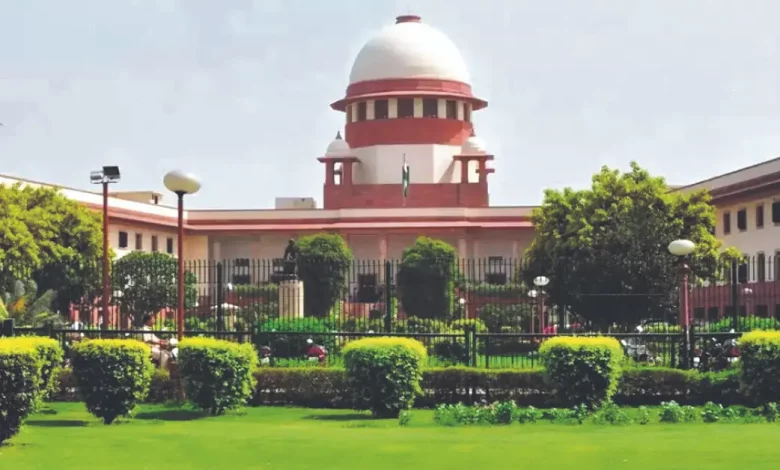Daily Current Affairs for UPSC
Supreme Court invalidated the electoral bonds scheme
Syllabus: Polity[GS Paper-2]

Context: The Supreme Court of India’s five-judge Constitution Bench has ruled against the Electoral Bond Scheme.
Details:
- The Judges of the Supreme Court have issued a ruling regarding the Electoral bond scheme, stating that it infringes upon the Fundamental Rights of citizens.
- Specifically, the court has determined that the scheme violates the right to information as outlined in Article 19(1)(a) of the Constitution.
- They argue that political funding information is crucial and should be accessible to the public.
- Furthermore, the court asserts that unlimited corporate funding goes against the principles of free and fair elections in the country.
- They believe that political funding has the potential to influence policy making, and the lack of transparency regarding corporate funding is deemed unconstitutional.
- In light of this ruling, the court has instructed the State Bank of India (SBI) to cease the issuance of electoral bonds and provide all relevant details regarding those who have already cashed in these bonds.
Electoral Bonds:
- An electoral bond is a financial instrument that operates in a manner similar to a promissory note.
- It can be purchased by any Indian citizen or company incorporated in India, exclusively from designated branches of the State Bank of India.
- Once acquired, the bond can be donated to any eligible political party as per the preferences of the individual or corporate entity.
- These bonds function much like regular bank notes, as they are payable to the bearer upon request and do not accrue any interest.
- Both individuals and political parties have the option to acquire these bonds digitally or by issuing a cheque.
What reasons have led to them receiving criticism?
- The opponents of the electoral bonds scheme believe that the system does no good in making the elections money’s transparency.
- They argue that the anonymity of Dala represents a bias in favour of the general public and opposition parties, and that the government can still trace the funding of its enemies.
- By doing this, this creates the conditions in which rulers may force companies without support for the ruling party to bribe and abuse or victimise, thus, giving advantage to those unfunded companies and those that are supporting the ruling party.
- Plus claims that the system allows ordinary people to easily buy bonds in order to support political parties might have spread but the absolute majority of bonds purchased have been originally issued to the greatest amount.
- Critics, on the other hand, bring up that the government has removed a cap on donations from corporations, and that now corporations can contribute with unlimited funding from their side.
What were the arguments against Electoral Bonds?
- Electoral bonds in India compromise citizens’ ‘Right to Know’ by hiding donor and recipient identities.
- The scheme removes the Companies Act 2013 clause, allowing companies to make political contributions based on net average profit.
- This raises concerns about black money in political funding through shell companies.
- Electoral bonds also compromise shareholders’ rights, as they allow companies to funnel money to political parties without oversight.
- Corporations have made donations to Indian political parties for decades, often funding rival parties.
- Electoral bonds may lead to crony-capitalism, as businesses round-trip their cash to political parties for favours through shell companies.
- The scheme has led to a rise in large donations from corporates, bypassing Rajya Sabha scrutiny.
- The government has also introduced a retroactive amendment to shield foreign financing of Indian elections from scrutiny.
- The Supreme court has repeatedly declared free and fair elections as a part of the basic structure of the electoral process.
Conclusion:
- The Supreme Court made a very important decision about something called electoral bonds.
- They said that this way of giving money to political parties is not fair and goes against the rules of our country.
- They also said that the bank that gives out these bonds has to tell the government how much money each political party got from them.
- This will make things more fair and open in politics, and make sure that everyone has the same chance.
Source: IE
Practice question:
Q. With regards to electoral bonds, which of the following statements is/are correct?
- The Electoral Bond Scheme was announced in the 2018 Budget.
- Electoral bonds aim at bringing clean money and transparency into the system of political funding.
- The electoral bonds may be purchased by a citizen of India.
Select the correct answer using the codes given below:
- 1, 2 and 3
- 1 and 2 only
- 2 and 3 only
- 1 and 3 only
Ans: “c”





.png)



